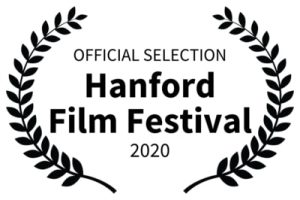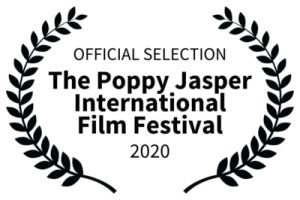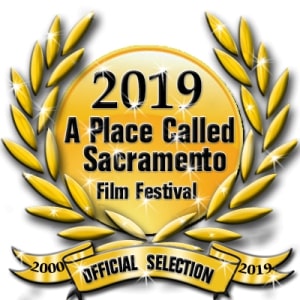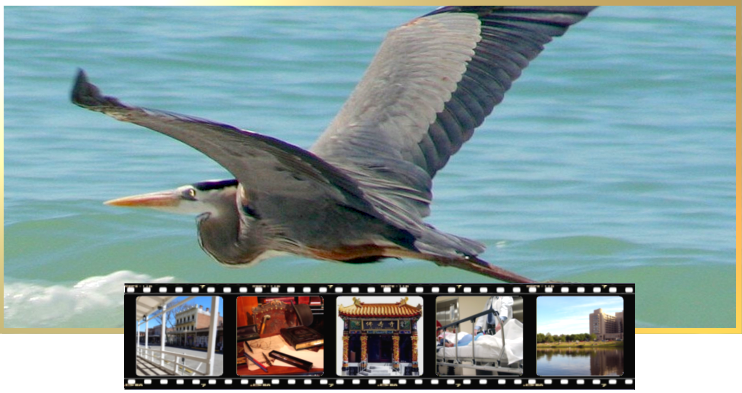Premiered October 2019
Sometimes the greater honor means defying the law.
Flight of the Heron – Official Selection
20th Annual A Place Called Sacramento Film Festival
SUMMARY
A young Chinese-American med student is transported back in time to historic Sacramento, but things get even more complicated when she must convince her ancestor to defy a Chinese immigration ban and smuggle his wife into the U.S.
In Sacramento, Lu Ho is a stellar med student. When she falls critically ill, she gets a surprise visit from Gabriel, an old love who’d vanished mysteriously.
Now he shares an app with Lu that lets her time travel and discover history did not unfold as she thought. When Congress bans Chinese women’s immigration, Lu must convince her ancestor, a doctor, to smuggle his wife into the U.S. and open a badly needed clinic.
Lu seals the deal, saving countless lives for generations.
But Lu’s illness takes a turn and she finds she must stare down her own mortality.
Watch “Flight of the Heron” Now:






DIRECTOR’S SYNOPSIS
“Flight of the Heron” is a gorgeous, poignant 14-minute short film that deals with sweeping themes – systemic bigotry, the fleeting bitter-sweetness of life, the eternal nature of death, and how we can meet injustice with love even if it means self-sacrifice.
We were incredibly lucky to attract such talented cast and crew to our film. The nucleus of the plot involves the Page Act of 1875, banning Asian immigration into the US. The story seemed to create its own centrifugal force, helping to fuel the buzz in our local film community. “I have to be involved with this movie,” so many said. “This is our story – the story of my family.” So many of their parents, aunts, uncles, cousins, grandparents and other family members had been brushed personally by the bitter finger of immigration injustice. We geared up and quickly got into production.
It was my great pleasure to work with veteran SAG Actor Bill Raymond – my Dad – who portrays the smuggler Josiah Nichols in our film. His professional work during a lifetime on stage and screen made it only fitting that he was the first actor we cast. Though Dad and I had worked together before, this was my directorial debut. That means his accepting the role wasn’t exactly a slam dunk. I was honored that he said yes.
Bill’s experience and professionalism up-leveled our production – his ease rubbed off on everyone around him, and the result is scintillating to watch onscreen.
It’s no wonder. His TV and film credits include beefy roles in HBO’s “The Wire”, “Lincoln”, “Michael Clayton”, “The Ref”, “12 Monkeys”, “Law & Order”, “Miami Vice” and dozens of others. He played on Broadway in “Gypsy” with Patty Lupone, and played Scrooge for 16 seasons at the Hartford Stage. Bill was a charter member of Mabou Mines, San Francisco’s Actors Workshop, and the San Francisco Mime Troupe. Bill also voiced hundreds of radio drama episodes for NPR, BBC, and US Armed Forces Radio, some of which I engineered.
My creative partner Todd Bull and I go way back. We met in high school when we both auditioned for a community theater production of Meredith Wilson’s “The Music Man.” We both were cast – he as Marcellus Washburn, and I as a lead dancer. Todd’s sister Natalie and I became best friends, and Todd and my brother Duncan worked together on the school newspaper. All of us performed together in several plays, and we wove in and out of each others’ lives.
Time made us drift apart, but Todd and I reconnected a few years ago on social media. Since then, we’ve written some award-winning feature scripts together and have now launched our own production company, Circle B Productions. It’s been a thrilling ride.
“Flight of the Heron” got its start when Todd approached me to co-write a short film to enter into A Place Called Sacramento film festival. He had an idea that centered around the Page Act of 1875. I’d never heard of it. I soon learned that this divisive federal law banned Asian immigration, at first mainly barring Chinese women from entering the United States.
I was stunned – I didn’t even know this law existed, but I soon learned there was a succession of laws that discriminated against Asians, keeping them from moving into the US for more than 60 years. The Chinese Exclusion Act finally ended in 1943 when the US recruited Chinese to enlist in our armed services and fight the Japanese in Word War II. After that it was the Japanese who were banned from entering the US until the ’50s.
The more Todd and I learned in our research, the more we were compelled to write this story and distill such a sweeping injustice down to a personal level. Thus was born our central character Lu Ho, a Chinese-American med student who travels back in time. “Flight of the Heron” tells a beautiful love story against the backdrop of the Page Act as she travels back to 1875.
Lu meets her ancestor, a doctor, and his personal plight fuels her own adventure in and around Sacramento during the Victorian era. Separated from his wife by the Page Act, Chon’s only hope for himself and his thousands of patients is to smuggle his wife from China into the U.S.
Todd and I knew we had hit on a good story. What we didn’t anticipate was the impact that our script would have on the Asian community in our area when we moved from concept to production. As we auditioned cast and crew, many came to us with tears in their eyes, begging to be part of the film. “This is our story. I have to be a part of this film.”
Their passion for our film was humbling, and we knew we had to include them. What started out as project with a cast of 4 soon demanded our telling the story on a much grander scale. When we finally shot the film, our cast and crew numbered close to 100. Yet we were filming in the tiny town of Locke, California, whose population is only 70.
We knew our production was ambitious, especially filming on location in intense summer heat with no air conditioning. The fact that we captured these amazing performances in such gorgeous detail is a testament to our fabulous cast and crew. The result is truly OUR movie, and we are all incredibly proud.
For Todd and me, this was our freshman film making effort. It will not be our last, and we are in momentum on 4 other projects at this time. But for us, “Flight of the Heron” will always hold a special place in our hearts, and we will continue to pursue social justice through film.
